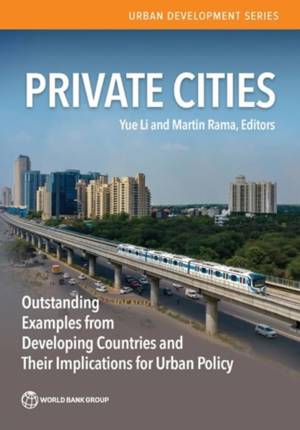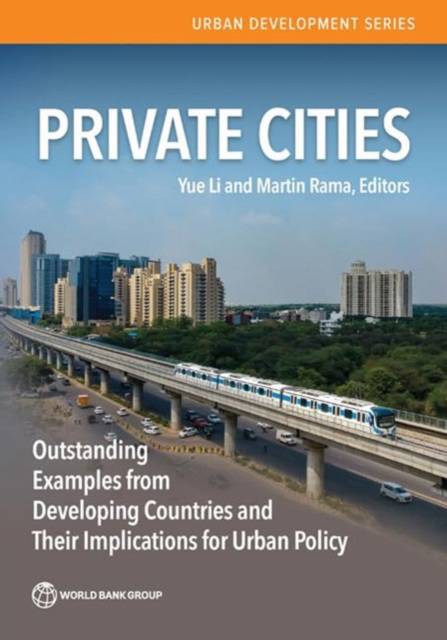
- Afhalen na 1 uur in een winkel met voorraad
- Gratis thuislevering in België vanaf € 30
- Ruim aanbod met 7 miljoen producten
- Afhalen na 1 uur in een winkel met voorraad
- Gratis thuislevering in België vanaf € 30
- Ruim aanbod met 7 miljoen producten
Zoeken
Private Cities
Outstanding Examples from Developing Countries and Their Implications for Urban Policy
Yue Li, Martin Rama
€ 73,45
+ 146 punten
Omschrijving
Institutional constraints and weak capacity often hamper the ability of local governments in developing countries to steer urbanization. As a result, there are not enough cities to accommodate an unabated rural-urban migration and many of those that exist are messy, sprawling, and disconnected. The flipside is the emergence of entire cities--more than gated communities or industrial parks--led in whole or in part by private actors. To date, little systematic research has been conducted on the conditions that are necessary for such unusual entities to emerge, on the roles played by private actors, or on the consequences for efficiency and equity. 'Private Cities: Outstanding Examples from Developing Countries and Their Implications for Urban Policy' aims to fill this gap. Using an analytical framework that draws on urban economics and political science, it includes inventories of private cities in the Arab Republic of Egypt, India, Indonesia, and Pakistan and provides structured reviews of 14 outstanding examples across all developing regions. Nongovernment actors turn out to be diverse--they include not only major companies and large developers but also business associations, civil society organizations, and even foreign countries. The way local governments interact with these nongovernment actors varies as well, from deliberate neglect to joint ventures. Private actors take on some--but not all--local government functions, while at times embracing unconventional roles. And while private cities tend to be economically successful, they can lead to environmental degradation, social segregation, and even institutional secession. Increasing the capacity of local governments in developing countries will take time.Along the way, inefficient spatial development patterns may be locked in. There is a case for selectively tapping into the comparative advantage of significant private actors while actively using policy tools to avoid the potential shortcomings. In the spirit of a publicprivate partnership for urbanization, land value capture would be at the center of this approach.
Specificaties
Betrokkenen
- Auteur(s):
- Uitgeverij:
Inhoud
- Aantal bladzijden:
- 274
- Taal:
- Engels
- Reeks:
Eigenschappen
- Productcode (EAN):
- 9781464818332
- Verschijningsdatum:
- 15/06/2023
- Uitvoering:
- Paperback
- Formaat:
- Trade paperback (VS)
- Afmetingen:
- 178 mm x 254 mm
- Gewicht:
- 662 g

Alleen bij Standaard Boekhandel
+ 146 punten op je klantenkaart van Standaard Boekhandel
Beoordelingen
We publiceren alleen reviews die voldoen aan de voorwaarden voor reviews. Bekijk onze voorwaarden voor reviews.











